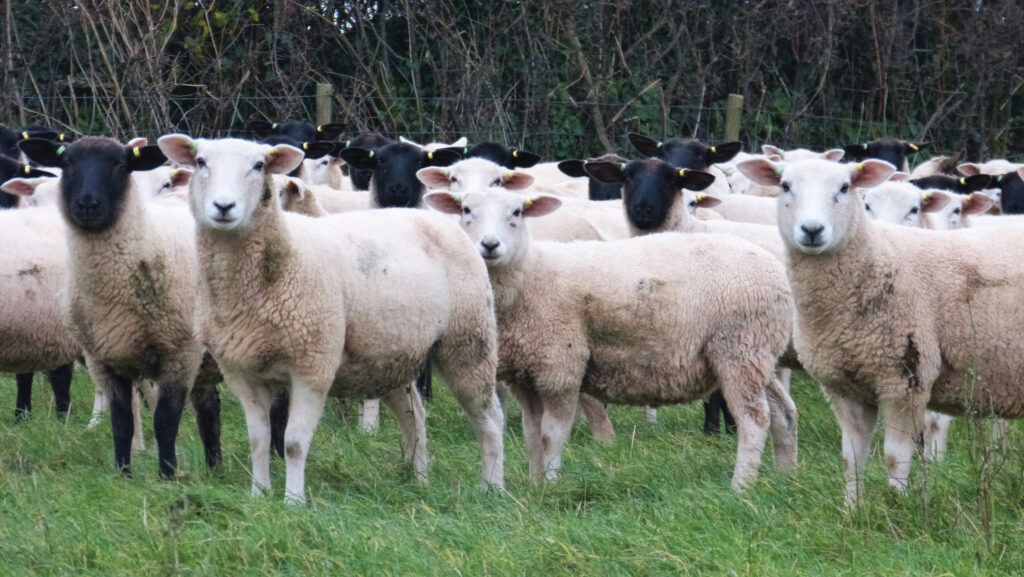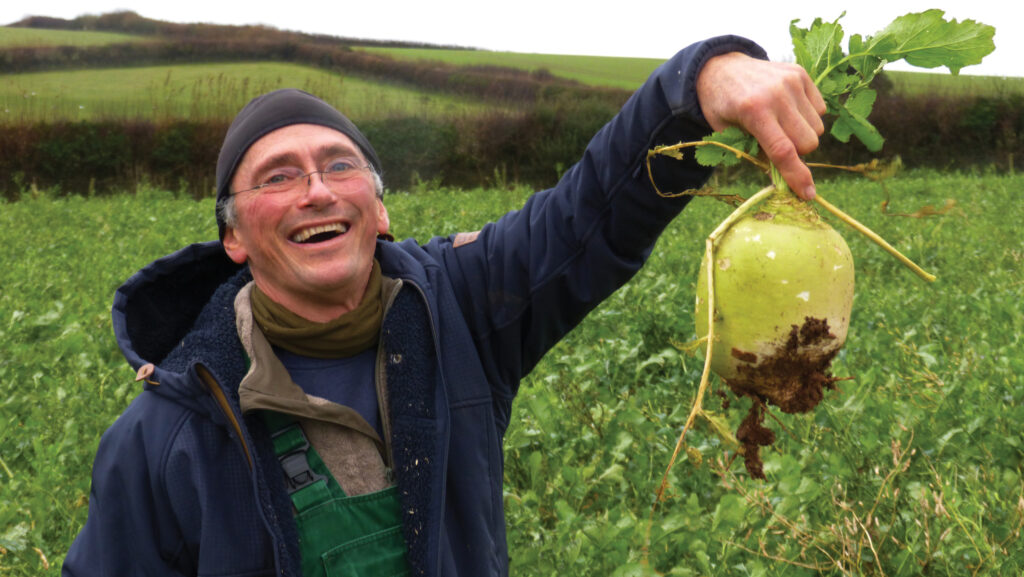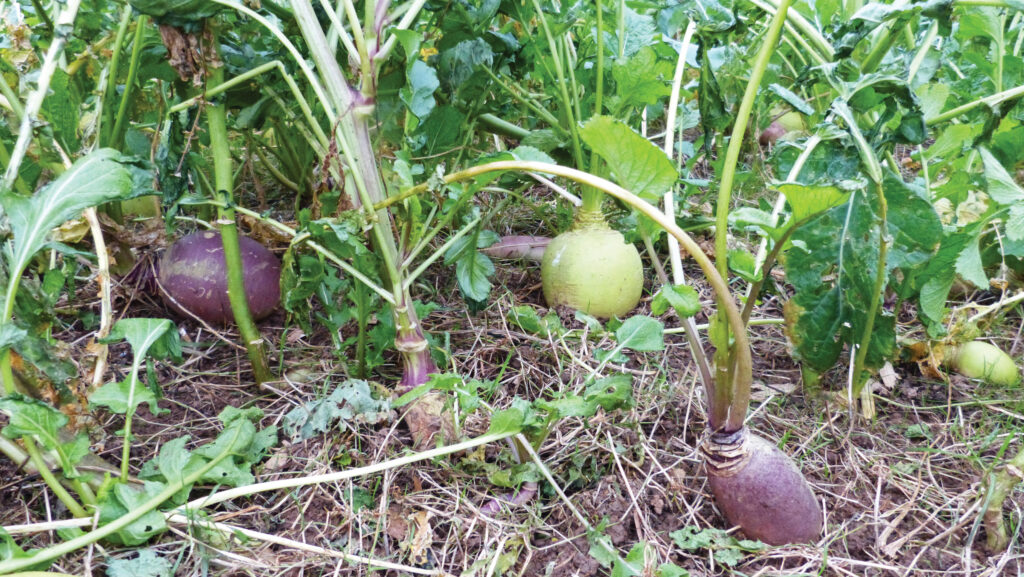Ram alliance and outcross lift Devon breeder’s income
 © MAG/Michael Priestley
© MAG/Michael Priestley A Devon sheep breeder has used outcrossing and collaboration to lift income across his maternal and terminal stud flocks, respectively.
Peregrine Aubrey, of Eastergrounds Farm, near Kingsbridge, has lifted prime lamb production 7% by using a prolific composite breed imported from New Zealand on his maternal flock, creating his own breed in the process.
Furthermore, his ram cheque has increased by becoming a multiplier for one of the UK’s major ram producers on his 110-ewe terminal New Zealand Suffolk enterprise.
See also: How Yorkshire farm is using EID to find most productive ewes
Farm facts: Eastergrounds Farm, Kingsbridge, Devon
- 750 ewes (490 ProlleyNZs, 150 Lleyns and 110 New Zealand Suffolks) and 300 ewe lambs
- 150ha effective
- 16ha of spring barley
- 32ha of herbal leys
- Prime lambs sold to ABP, Yetminster, producing 19.5kg carcass
- 10-12ha of cover crops and fodder beet for wintering ewes

Peregrine Aubrey © MAG/Miichael Priestley
Maternal focus
A disciple of flock data and Signet recording, Peregrine has been performance-recording Lleyns since 2010.
Previously a beef, sheep and arable farmer, he stopped cattle production because he thought the farm was too small to stock sufficient cows to collect enough good data.
Instead, he focused on adding value through pedigree sheep sales.
He prioritised maternal traits such as lambing ease and eight-week weight.
However, he found it difficult to sell enough rams, partly because of location and competition from other good Lleyn breeders, and partly because of inbreeding issues presented by self-replacing maternal rams.
“I used to diddle myself out of sales as I’d always run an inbreeding checker,” says Peregrine. “I want the customer to have something that will work.”
To spread risk and cut out the need to buy in terminal tups, he bought 30 New Zealand Suffolk-based ewes in 2011 to get into the terminal sire market.
The numbers
- 3 Average lamb weaning weight (kg) increase since 2013, taking weights to 23kg
- 16,000 Number of lamb records Peregrine Aubrey has had processed since Signet recording started in 2010
- 5 How much heavier scan weight (kg) is compared with 2010
Collaboration
He then sourced pure New Zealand Suffolk stock rams from Robyn Hulme of EasyRams, Shropshire.
He became a repeat customer and after three years, the pair formed a partnership arrangement (see “Ram partnership strengths”).
“Peregrine was frustrated at only being able to sell a limited number of rams,” explains Robyn. “We were growing our customer base and needed more rams to sell.
“The agreement is mutually beneficial and purely a gentleman’s agreement.”
Robyn supplies stud rams free of charge to Peregrine each autumn to run with Peregrine’s New Zealand Suffolk ewes.
Ewes lamb in March and are weaned in August, at which point Robyn travels to Devon to assess the ram lambs, selects the top 40 or so (on figures and appearance) and takes them home.
He pays Peregrine three to four times that of a store lamb price.
Once in Shropshire, the ram lambs paddock-graze grass and cover crops through winter. About 10% will not make the cut by the following autumn, says Robyn.

© MAG/Michael Priestley
Ram partnership strengths
- Marketing Robyn Hulme’s role in his family business is primarily marketing, leaving day-to-day sheep work to his son Nick. From July to October his sole focus is talking to customers. The Hulmes have spent more than £300,000 on marketing since 2007
- Co-operation Rather than being in competition with New Zealand Suffolk breeders, Robyn deemed it worthwhile to co-operate with Aubrey Peregrine, pooling expertise.
- Market share The Hulmes left the Suffolk Sheep Society in 2006, sold 12 rams privately the following year and were selling 200 or more a year when Peregrine became a multiplier. The partnership enabled the Hulmes to sell more rams when demand was taking off. In 2024, they sold 730 rams, taking total ram sales to more than 6,500, to more than 1,500 farmers.
- Contacts Robyn has knowledge of live ram importation and New Zealand stud flocks, from which Peregrine can benefit. They share the high cost of ram importation.
- Flock health Peregrine has strict flock health policies, with no sheep wintered away. He uses solely EasyRams semen and live rams, and his flock is closely monitored for iceberg diseases.
- Data Robyn gets the benefit of testing his genetics in a recorded flock, while Peregrine can tap into some of the value created by UK demand for elite sires from “nil-shepherded” New Zealand flocks.
- Grass-fed systems Both breeders produce rams from grass, haylage and root/winter crops, with no cereal or concentrate.
- Camaraderie Talking most weeks on the phone about improving management and performance replaces some of the breed society camaraderie both men left behind.
Prolificacy gains
A more recent change for Peregrine has been to increase scanning percentage and lambs reared by using composite maternal rams from New Zealand, based on a three-way cross.
These composites – which Robyn has been importing for the past 20 years – include the Tefrom, Greeline, Textra and Kelso.
They all combine the foraging, low-cost nature and wide pelvises of the New Zealand Romney, the prolificacy and milk of the East Friesian, and the carcass of Scandinavian Texels.
“I’d noticed my flock, and the Lleyn breed in general, was losing prolificacy,” he explains. “We scanned at 200% 15 years ago, and this had dropped to 160%. I wanted to try an outcross to produce more lambs.”
Peregrine called the resultant Lleyn crosses “ProlleyNZ”. They scan 25% higher than the pure Lleyns did, typically hitting 185%.
They produce 0.2 more lambs at each lambing, pushing overall sales up by at least 100 lambs, after accounting for an average farm mortality rate of about 15%.
This includes a “black loss” of 3-4% caused by raven and gull predation, a coastal problem.
Outcrossing
Outcrossing began as a trial in 2019 on 150 Lleyn sheep, with semen straws from three rams (two Tefrom and one Greeline).
In 2020, 50:50 (first-cross) ram lambs were used on Lleyns, as well as semen straws and one Lleyn ram.
Since then, home-bred rams have been used. In the 2023 and 2024 breeding seasons, four different EasyDam rams from Robyn bred from imported composites.
This was cheaper than artificial insemination, reduced inbreeding risk, and provided Peregrine with purer New Zealand rams.
“It’s worked well in that my lambs-sold figure in 2024 is higher than my scanning percentage was a few years ago,” explains Peregrine.
“I like to have an annual replacement of 40% to ensure maximum genetic advancement and allow me to cull ewes that do not make the grade.”
Breeding sales
He typically sells 20-30 white-faced rams (ProlleyNZ) a year to private customers and 40 weaned ram lambs to the Hulmes each year.
He also sells 140-150 white-faced ewe lambs for a £30 premium over prime lamb price annually.
“Being a multiplier has roughly doubled income from ram sales on the Suffolk side,” he says.
“And I hope to find the sweet spot on the white-faced ewes by consistently getting a good twin rate.”
